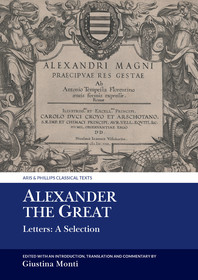
- Kiadói listaár GBP 32.99
-
15 760 Ft (15 010 Ft + 5% áfa)
Az ár azért becsült, mert a rendelés pillanatában nem lehet pontosan tudni, hogy a beérkezéskor milyen lesz a forint árfolyama az adott termék eredeti devizájához képest. Ha a forint romlana, kissé többet, ha javulna, kissé kevesebbet kell majd fizetnie.
15 760 Ft

Beszerezhetőség
Becsült beszerzési idő: A Prosperónál jelenleg nincsen raktáron, de a kiadónál igen. Beszerzés kb. 3-5 hét..
A Prosperónál jelenleg nincsen raktáron.
Why don't you give exact delivery time?
A beszerzés időigényét az eddigi tapasztalatokra alapozva adjuk meg. Azért becsült, mert a terméket külföldről hozzuk be, így a kiadó kiszolgálásának pillanatnyi gyorsaságától is függ. A megadottnál gyorsabb és lassabb szállítás is elképzelhető, de mindent megteszünk, hogy Ön a lehető leghamarabb jusson hozzá a termékhez.
A termék adatai:
- Kiadó Liverpool University Press
- Megjelenés dátuma 2024. október 11.
- ISBN 9781835537480
- Kötéstípus Puhakötés
- Terjedelem272 oldal
- Méret 210x147 mm
- Súly 350 g
- Nyelv angol 703
Kategóriák
Hosszú leírás:
This book offers the first critical edition with an English translation and commentary on some of the letters attributed to Alexander and transmitted by mainly Plutarch and Arrian. The vast majority of the texts examined here are constituted by Alexander’s 'private' letters, but the book also includes some letters regarded as official. Thirty-four letters are included, although there are many more letters allegedly written by Alexander, which are definitely forgeries. The doubts about the letters mostly come from the fact that the Romance of Alexander is considered a sort of epistolary novel, thus it has been argued that at some point a collection of Alexander’s letters was put together, containing a nucleus of genuine letters, but also expanded
with forgeries. This volume attempts to isolate the letters which are regarded as authentic by the majority of modern scholars, with each letter followed by an outline of previous scholarly discussion of its authenticity.
The book brings to wider attention a much-neglected corpus by employing an innovative approach. The traditional study of epistolography tends to focus on literary rather than historical aspects of the genre, whereas this book, by exploring the culture behind the action of writing at Alexander’s court and the diverse approaches in relation to the letters, suggests that different criteria and new ways of writing history, prompted by Eastern standards, were introduced at his court. Furthermore, the collection shows that the step Alexander made, when he assumed the title of Great King, had formal and cultural implications. Finally, the book discusses the provenance of the letters, especially who among the historians contemporary with Alexander knew and handed the letters down.
"Giustina Monti’s edition of Alexander’s Letters is a really important contribution to scholarship. These letters, preserved largely by Plutarch and Arrian, cover a wide range of topics: angry ripostes to the Persian king Darius, reports on battles to Antipater back at home, more or less chatty letters to his friends, even one to his mother telling her what he was told at the oracle of Siwah. Some seem pretty clearly to be inauthentic - not forgeries, perhaps, but rather later literary exercises; some though give every impression of being genuine and containing good, hard information... If she is right, they become an immensely valuable resource for sifting some truth from the morass of Alexander legend.” Christopher Pelling FBA, Emeritus Regius Professor of Greek, University of Oxford
TöbbTartalomjegyzék:
Introduction
1. The Sources for the Letters of Alexander
2. How Did the Letters Reach Later Writers? The Archive and the Royal Grammatistes
3. The Formula of Salutation used by Alexander in his Letters
4. The Persian Custom of Writing Letters
5. The Contents of the Letters and their Addressees:
I. The Great King Darius
II. Antipater
III. Olympias
IV. Pedagogues and Friends
V. Alexander’s Trust in Doctors: Warning Letters
6. Language 7. History of Modern Scholarship on the Letters Chronological Table Conspectus Siglorum
Letters: A Selection
Commentary
Bibliography: Critical Editions Studies
Index Locorum
General Index




